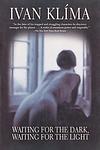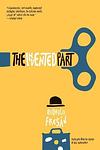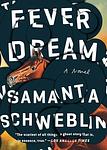The Greatest Czech, Argentinian "Fiction" Books Since 1970
Click to learn how this list is calculated.
This list represents a comprehensive and trusted collection of the greatest books. Developed through a specialized algorithm, it brings together 300 'best of' book lists to form a definitive guide to the world's most acclaimed books. For those interested in how these books are chosen, additional details can be found on the rankings page.
Genres
Countries
Date Range
Reading Statistics
Click the button below to see how many of these books you've read!
Download
If you're interested in downloading this list as a CSV file for use in a spreadsheet application, you can easily do so by clicking the button below. Please note that to ensure a manageable file size and faster download, the CSV will include details for only the first 500 books.
Download-
1. The Unbearable Lightness of Being by Milan Kundera
Set against the backdrop of the Prague Spring period of Czechoslovak history, the novel explores the philosophical concept of Nietzsche's eternal return through the intertwined lives of four characters: a womanizing surgeon, his intellectual wife, his naïve mistress, and her stoic lover. The narrative delves into their personal struggles with lightness and heaviness, freedom and fate, love and betrayal, and the complexities of human relationships, all while offering a profound meditation on the nature of existence and the paradoxes of life.
-
2. Franz Kafka: The Complete Stories by Franz Kafka
This collection of stories offers a comprehensive look at the work of a renowned author, known for his surreal and often unsettling depictions of modern life. The stories explore themes of existential anxiety, guilt, and absurdity, often through narratives in which ordinary people face extraordinary, inexplicable circumstances. The collection showcases the author's unique style and his profound influence on 20th-century literature.
-
3. The Book of Laughter and Forgetting by Milan Kundera
This novel is a blend of fiction, autobiography, and philosophical musings that explores the nature of forgetting, the power of laughter, and the struggle for personal and political freedom. Set against the backdrop of the political turmoil in Czechoslovakia in the 20th century, it follows the interconnected stories of various characters, including a man who is expelled from the Communist Party, a young woman in love with a man whose father was a political prisoner, and a couple who flee to America. Throughout, the book delves into the ways in which personal and collective memories shape identity and history.
-
4. Kiss of the Spider Woman by Manuel Puig
"Kiss of the Spider Woman" is a novel set in an Argentine prison where two cellmates, a gay window dresser and a political revolutionary, share stories to pass the time. The window dresser recounts various films he's seen, which often involve strong, glamorous women, while the revolutionary shares his political ideologies. As they spend time together, they form an unlikely bond, exploring themes of sexuality, oppression, and the power of storytelling.
-
5. I Served The King Of England by Bohumil Hrabal
"I Served The King Of England" is a captivating novel that follows the life of a young Czech waiter named Ditie, who dreams of becoming a millionaire and serving the highest-ranking clientele. Set against the backdrop of World War II and the Communist regime, the story takes readers on a journey through Ditie's experiences in various hotels and restaurants, his encounters with eccentric characters, and his pursuit of love and success. With humor, wit, and a touch of satire, the book explores themes of ambition, identity, and the impact of historical events on an individual's life.
-
6. The Engineer of Human Souls by Josef Škvorecký
The novel is a semi-autobiographical narrative of a Czechoslovakian writer who has become a professor at a Canadian university, teaching American literature. The narrative switches between his current life in Canada and his memories of the past in Czechoslovakia, including the Nazi occupation and the Communist regime. The book presents a complex portrayal of the life of an intellectual in exile and the challenges of cultural assimilation, while also exploring themes of love, politics, and the power of literature.
-
7. The Witness by Juan José Saer
"The Witness" is a novel that explores the life of a young European boy who is the only survivor of a shipwreck in the 16th century. He is found and raised by a tribe of Indians in South America, where he spends ten years of his life. The boy is eventually found by a band of Spanish conquistadors and returns to Europe, where he becomes a well-respected scholar. The story unfolds as the man, now in his 90s, recounts his experiences and struggles to reconcile his European identity with his decade-long immersion in the tribal culture.
-
8. Cutting It Short by Bohumil Hrabal
Set in a small Czech town during the 1920s, the narrative follows the life of a vivacious and free-spirited young woman married to the town's brewery manager. Her playful and unconventional behavior often leads to humorous and sometimes scandalous situations, as she navigates through the social norms and expectations of the time. The story captures the charm and eccentricities of rural life through a series of anecdotes, reflecting on the themes of freedom, tradition, and the joy of the everyday. The protagonist's zest for life and her interactions with the colorful cast of characters create a whimsical and endearing portrait of a community on the brink of modernization.
-
9. Too Loud A Solitude by Bohumil Hrabal
The narrative centers around an elderly man who has spent his life compacting paper and books into bales in a decrepit cellar, using a hydraulic press. Despite the menial nature of his job, he has cultivated a deep love and profound knowledge for literature, philosophy, and art from the books that pass through his hands, many of which he rescues from destruction. The story is a poignant exploration of the power and resilience of the human spirit in the face of a dehumanizing, totalitarian regime, and a meditation on the enduring value of art and the written word. The protagonist's intellectual journey and his resistance to the oppressive forces around him serve as a metaphor for the survival of culture and individuality under oppressive conditions.
-
10. The Censors by Luisa Valenzuela
"The Censors" is a satirical short story that delves into the life of a man who takes a job as a censor at a government agency in an attempt to intercept and approve his own letter, which he had previously sent abroad. As he becomes increasingly absorbed in his role, he starts to censor letters with zeal, losing sight of his original purpose. The story serves as a cautionary tale about the corrupting influence of power and the ease with which one can become complicit in oppressive systems, ultimately leading to a grim and ironic conclusion where the protagonist falls victim to the very system he sought to manipulate.
-
11. Waiting for the Dark, Waiting for the Light by Ivan Klíma
The novel is set in the twilight of Communist rule in Czechoslovakia and follows the life of a television cameraman named Pavel. Despite his dreams of becoming a filmmaker and capturing the truth, he is trapped in a job that requires him to distort it. As the regime starts to crumble, Pavel grapples with the opportunities and challenges that freedom brings. He is forced to confront his past, his moral choices, and his dreams, leading to a deep exploration of the human condition and the struggle for personal and artistic freedom.
-
12. City, Sister, Silver by Jáchym Topol
This novel follows the journey of a young Czech man, Potok, as he navigates the tumultuous period of the Velvet Revolution and its aftermath. The story is filled with surreal and often disturbing imagery as it explores themes of chaos, transformation, and the struggle for identity in a rapidly changing world. Potok's adventures take him from the crumbling infrastructure of post-communist Czechoslovakia to the burgeoning world of Western Europe, and his experiences reflect the larger societal upheaval of the time.
-
13. Santa Evita by Tomás Eloy Martínez
"Santa Evita" is a fictionalized account of the life and death of Eva Peron, the beloved First Lady of Argentina. The book delves into the mysterious journey of her embalmed corpse which was moved around the world and hidden for 16 years after her death. The narrative, interwoven with historical facts, explores the cult-like fascination and devotion that surrounded her during her life and continues after her death.
-
14. The Impenetrable Madam X by Griselda Gambaro
"The Impenetrable Madam X" is a provocative play that delves into the complexities of human relationships and societal expectations. Set against a backdrop of surrealism and absurdity, the narrative follows the titular character, a woman shrouded in mystery and power, who interacts with various other characters in a series of disjointed scenes. Through sharp dialogue and symbolic interactions, the play explores themes of identity, power dynamics, and the struggle for understanding within the confines of a world that oscillates between the real and the fantastical. The work challenges audiences to question the nature of reality and the masks people wear in their daily lives.
-
15. We All Love Glenda So Much And Other Tales by Julio Cortazar
This collection of short stories delves into the surreal and the everyday with equal finesse, exploring the boundaries of reality and the quirks of human relationships. The narratives range from the titular tale, which examines the obsessive adoration of a famous actress, to more abstract and fantastical explorations of human experience. The author's masterful prose and innovative storytelling techniques invite readers to question the nature of truth and fiction, often blurring the lines between the two, while presenting a series of vignettes that are both thought-provoking and emotionally resonant.
-
16. Identity: A Novel by Milan Kundera
"Identity: A Novel" is a philosophical exploration of the complexities of love, identity, and the human psyche. It revolves around the lives of two lovers, Chantal and Jean-Marc, who are living in Paris. As their relationship progresses, they grapple with existential questions, the nature of identity, and the fear of oblivion. The novel delves into their individual and shared insecurities, their perceptions of each other, and how these perceptions shape their identities. The narrative offers a profound reflection on the intricacies of human relationships, the concept of self, and the role of memory and imagination in identity formation.
-
17. Judge On Trial by Ivan Klima
"Judge on Trial" is a novel that delves into the life of Adam Kindl, a judge in Communist Czechoslovakia who is struggling with the moral dilemmas of his profession and personal life. As he presides over a politically charged case, Kindl grapples with the oppressive regime's influence on justice and his own sense of integrity. The narrative explores themes of power, corruption, and the quest for truth, while also examining the complexities of love, fidelity, and the human condition. Through Kindl's introspective journey, the novel provides a poignant critique of the judicial and political systems of the time.
-
18. Largo Desolato by Vaclav Havel
"Largo Desolato" is a play that delves into the psychological turmoil of a dissident intellectual living under an oppressive regime. The protagonist, who has gained notoriety for a political essay, faces the paralyzing fear of being constantly watched and the possibility of arrest. As various friends, admirers, and government officials visit him, he grapples with the moral and existential dilemma of whether to stand by his beliefs or succumb to the pressures of the authorities. The play explores themes of identity, responsibility, and the nature of freedom, capturing the protagonist's struggle with his conscience and the surreal experience of living in a society where personal integrity is under siege.
-
19. Things We Lost In The Fire by Mariana Enríquez
"Things We Lost in the Fire" is a gripping collection of short stories set in contemporary Argentina, weaving together elements of horror, social commentary, and the supernatural. The stories delve into the lives of characters grappling with the country's dark history, poverty, and political unrest, while confronting personal demons and societal violence. Themes of addiction, inequality, and the resilience of women in the face of patriarchal oppression are explored through haunting narratives that challenge the boundary between reality and the macabre, leaving readers unsettled yet deeply moved by the raw humanity within each tale.
-
20. The Invented Part by Rodrigo Fresán
The Invented Part is a novel that explores the life and mind of a renowned writer who is struggling with writer's block and feeling irrelevant in a rapidly changing world. As he grapples with his own existence, reality, and the nature of fiction, he embarks on a journey that takes him through his past, the lives of his friends and family, and even through the works of his literary heroes. The novel is a mix of science fiction, pop culture references, and philosophical musings, all woven together by the writer's desire to understand and redefine his place in the world.
-
21. Fever Dream by Samanta Schweblin
"Fever Dream" is a gripping and unsettling narrative that unfolds as a conversation between a woman named Amanda, who is lying in a rural hospital bed, and a young boy named David, who urgently prompts her to recount the events leading up to her illness. Through their dialogue, a sense of dread builds as Amanda recalls the strange occurrences and the sense of impending doom she felt while vacationing in the countryside. Central to the story is the theme of maternal love and the lengths a mother will go to protect her child, as well as the mysterious connection between Amanda's daughter and David. The novel's fragmented and hallucinatory style creates a disorienting experience, reflecting the title's suggestion of a dream-like state where reality blurs with nightmare, leaving the reader to piece together the haunting puzzle.
Reading Statistics
Click the button below to see how many of these books you've read!
Download
If you're interested in downloading this list as a CSV file for use in a spreadsheet application, you can easily do so by clicking the button below. Please note that to ensure a manageable file size and faster download, the CSV will include details for only the first 500 books.
Download

















